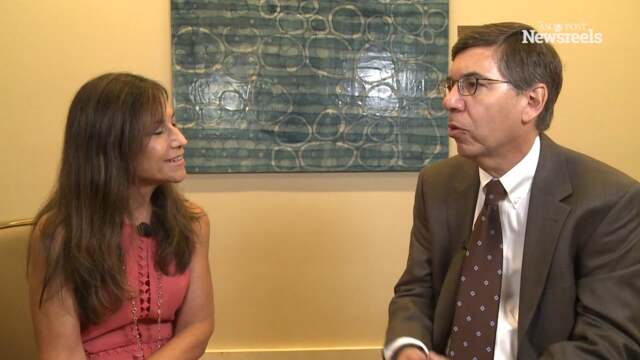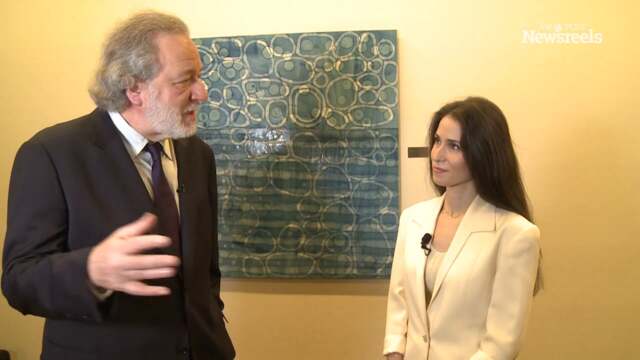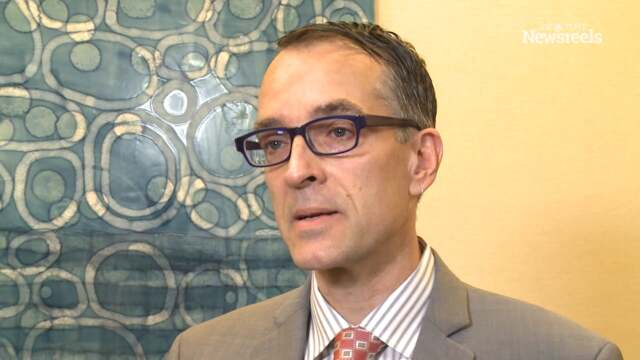Bradley J. Zebrack, PhD, and Ursula Sansom-Daly, PhD, on Global Psychosocial Standards of Care for Adolescents and Young Adults With Cancer
2015 IPOS APOS World Congress of Psycho-Oncology
Bradley J. Zebrack, PhD, of the University of Michigan School of Social Work, and Ursula Sansom-Daly, PhD, of the University of New South Wales, talk about providing supportive care services that meet the unique needs of adolescents and young adults with cancer.
Related Videos
Lori Wiener, PhD, DCSW, LCSW-C, and Paul B. Jacobsen, PhD
Lori Wiener, PhD, DCSW, LCSW-C, of the National Cancer Institute, and Paul B. Jacobsen, PhD, of the Moffitt Cancer Center, discuss the highlights of this year’s meeting, which for the first time brings together the international and American psychosocial oncology societies.
Allison J. Applebaum, PhD, and William S. Breitbart, MD
Allison J. Applebaum, PhD, and William S. Breitbart, MD, of Memorial Sloan Kettering Cancer Center, discuss the early days of this new treatment for despair and distress in cancer patients.
Christopher J. Recklitis, PhD, MPH
Christopher J. Recklitis, PhD, MPH, of the Dana-Farber Cancer Institute, discusses what is known about suicide after cancer, the risks faced by prostate cancer patients within the first year after diagnosis, and challenges across the treatment trajectory
Robert T. Croyle, PhD
Robert T. Croyle, PhD, of the National Cancer Institute, discusses the research program on the variation in the quality of cancer care, our ability to monitor quality and measure outcomes, and understand the psychosocial aspects of care.
Jeff Dunn, AO, PhD, GAICD
Jeff Dunn, AO, PhD, GAICD, of the Cancer Council Queensland, discusses reducing the burden of cancer on individuals and communities.





